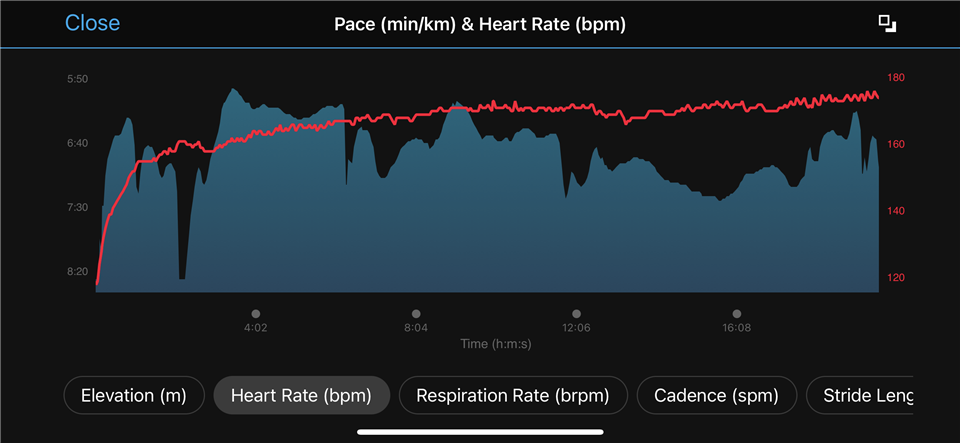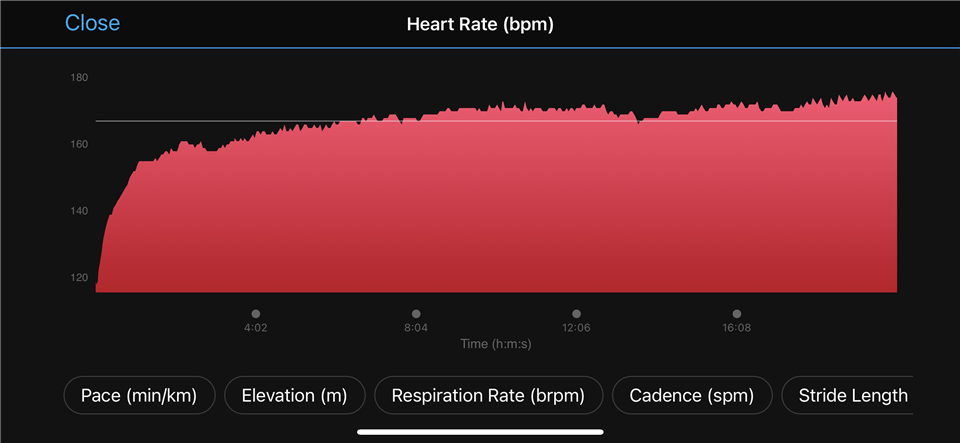Hi
I’ve doubted for some time the accuracy of the wrist HR sensor so bought a strap. Even on the strap in an activity my heart rate seems really high. On Saturday I was averaging 167 bpm on a 3 km run.
Resting HR seems what I’d expect around 54-60 bpm, but when I do exercise it goes really high really quick. On a warm up light jog where I can hold a conversation I’ll be at zone 3 / zone 4. Any thoughts? Couple of pics attached. 



